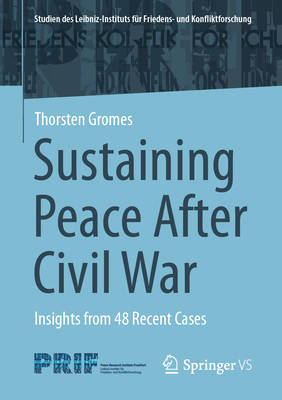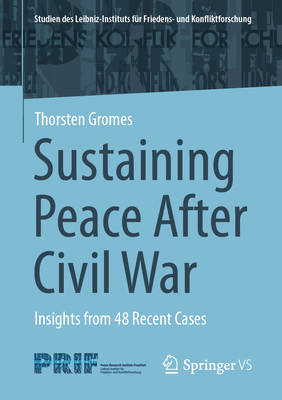
Bedankt voor het vertrouwen het afgelopen jaar! Om jou te bedanken bieden we GRATIS verzending (in België) aan op alles gedurende de hele maand januari.
- Afhalen na 1 uur in een winkel met voorraad
- In januari gratis thuislevering in België
- Ruim aanbod met 7 miljoen producten
Bedankt voor het vertrouwen het afgelopen jaar! Om jou te bedanken bieden we GRATIS verzending (in België) aan op alles gedurende de hele maand januari.
- Afhalen na 1 uur in een winkel met voorraad
- In januari gratis thuislevering in België
- Ruim aanbod met 7 miljoen producten
Zoeken
€ 106,95
+ 213 punten
Omschrijving
This book examines one of the most important questions in peace research: What leads to enduring peace after civil wars, and what leads to the resurgence of violence? For decades, intrastate conflicts have been the predominant form of armed conflict, and most recent civil wars were conflicts that recurred. The research presented in this book focuses on influenceable factors, first and foremost on the type of civil war termination and on the post-civil war order that is shaped by the distribution of military power between the former warring parties and the scale of political compromise. Moreover, it shows that the peacekeeping environment has a major influence on whether peace endures. The insights provided in this book are relevant for the academic community, and for decision-makers and practitioners involved in civilian or military efforts to establish and preserve peace.
Specificaties
Betrokkenen
- Auteur(s):
- Uitgeverij:
Inhoud
- Aantal bladzijden:
- 311
- Taal:
- Engels
- Reeks:
Eigenschappen
- Productcode (EAN):
- 9783032117090
- Verschijningsdatum:
- 17/01/2026
- Uitvoering:
- Paperback
- Formaat:
- Trade paperback (VS)
- Afmetingen:
- 148 mm x 210 mm
- Gewicht:
- 426 g

Alleen bij Standaard Boekhandel
+ 213 punten op je klantenkaart van Standaard Boekhandel
Beoordelingen
We publiceren alleen reviews die voldoen aan de voorwaarden voor reviews. Bekijk onze voorwaarden voor reviews.









